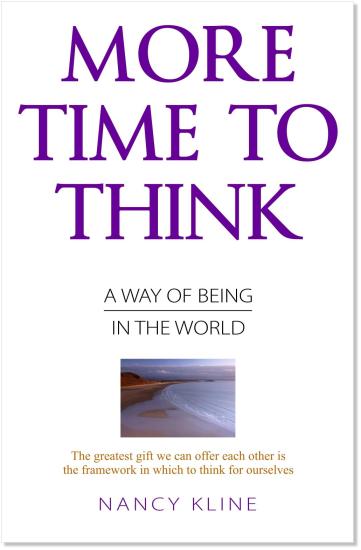
Rating: Not rated
Tags: Career Development, Lang:en
Summary
Does everyone’s independent, fresh thinking matter
more now than ever? More Time To Think is a resounding “yes” to
this question. In this graceful, sage like book, Nancy Kline
will take you into the heart of the Thinking Environment as
it has unfolded over the last decade since the publication of
Time To Think. It will touch you with stories, challenge you
with theory, inspire you with results, stretch you with
questions, excite you with practice. And it will move you
with its eloquence and warmth. This book is both a good place to start and a superb place
to continue your understanding of this important theory and
process. If you long for leadership you trust, meetings you
love, relationships you cherish, community you know can work
for everyone, or the life you really want, More Time To Think
can lead you there. This Thinking Environment has emerged from one important
observation and one importunate question. The observation is
simple. It is even a Introduction bit dry. But it is chilling
in its implications. It can slip right by us if we are not
looking. And the price we pay for not seeing it is high. The observation is: The quality of everything human beings do, everything
– everything – depends on the quality of the
thinking we do first. If this observation is true, and I think it is almost
certain (although I am wary of certainty – I think it
is a drug, and an impossibility), it changes our
understanding of leadership. It places right at the top of
required expertise in leaders and professionals and parents
and teachers the ability to generate people’s finest
independent thinking. Suddenly then, in the horizon emerges this question: How do we help people to think for themselves, with
rigour, imagination, courage and grace?
That question has fascinated me for most of my life. In
1973 Peter Kline and I founded Thornton Friends School and
began to look for answers to that question. Over the years we
and our colleagues confirmed that the most important factor
in whether or not people can think for themselves is how they
are being treated by the people with them while they are
thinking. The way people behave with each other actually determines
the quality of their thinking. Behaviour in the listener is
more important than IQ, education, experience or background
in the thinker. Over time we noticed that there were ten
behaviours that enhance people’s thinking most. (I am
sorry there are ten; it seems too pat, and disturbingly
biblical. Maybe you will discover an eleventh. If you do, we
will un-neaten the list in a flash.) We began to see that the Ten Components of a Thinking
Environment are around us all of the time, darting in and out
of view, igniting people’s thinking, but intermittently
crashing into other behaviours that inhibit people’s
thinking. We had to extricate the thinking-enhancing
behaviours from the thinking-inhibiting ones. As we did, we
could see that their power was undeniable. No archaeologists
were ever more exhilarated than we were, after years of
digging, to gaze upon that simple fact. If we behave in ten particular ways, people around us will
think for themselves, often brilliantly.
How do we do that?